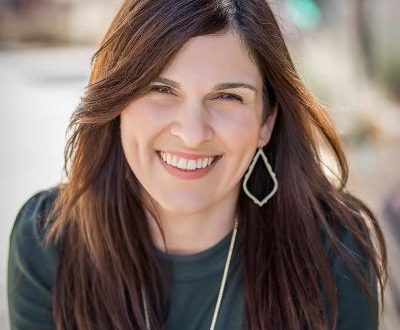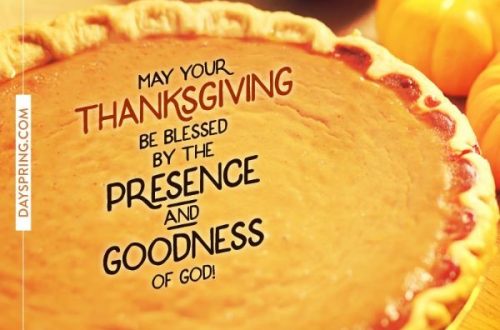Old Testament Disciplemaking (2 Chronicles 17-20)
Have Christians who really love God been strong influences in your life? How have they helped you to stay faithful to God in the midst of a culture that wants to rip you away from your faith? When we know the stories of faithful believers in our great God, even with their faults, we can counterbalance our culture’s attempts to distort our view of ourselves as Christians by belittling our past. But that requires a commitment to follow God and intentionally teach the next generation about the true heritage of those who walked with God before them. That is what King Jehoshaphat did.
Ever since first being introduced to Jehoshaphat (reading through 1 Kings and 2 Chronicles), I’ve been drawn to the life of this man. He loved God and tried to be a disciplemaker for God with the people in his sphere of influence. Right up front in 2 Chronicles 17:3-4, it is declared that the Lord was with Jehoshaphat because he sought God and “followed His commands rather than the practices of Israel.” Guess who was leading Israel at this time. Yep, the very wicked Ahab and Jezebel. Jehoshaphat’s life provided a stark contrast between good and evil. God established the kingdom under Jehoshaphat’s control so much so that it made the surrounding lands fear the Lord more. Verse 6 says his “heart was devoted to the ways of the Lord.” Devoted. How devoted? Well, he organized the discipling of all his people by taking the Word of God to the people where they lived. He sent officials, certain Levites, and a couple of priests with copies of the Books of Moses (first 5 books of the Bible). “They went around to all the towns of Judah and taught the people (verse 9).” Now that’s intentional disciplemaking — going to the people so everyone can hear, not just those who travel to Jerusalem for festivals.
As a boy and a young man, Jehoshaphat’s father Asa was committed to God. I think that certainly helped Jehoshaphat to get a good start. But, as king, he made the choice to continue following God. That doesn’t mean he did everything right. In 2 Chronicles 18, we read that he allied himself with Ahab by marriage. He married the daughter of Ahab and Jezebel. Probably to avoid being attacked by Israel. That marriage would come back to haunt his descendants later! For now, Ahab wanted Jehoshaphat to join him in battle against a common foe. Jehoshaphat wanted to seek the Lord’s counsel first. So, Ahab called in all his “prophets.” Jehoshaphat didn’t trust them one bit and had the discernment to ask, “Is there a real prophet of God in the house?” There were several true prophets still living in Israel sort of like missionaries. God is never totally shut out of a place, no matter how dark! Micaiah was called upon and would not compromise the truth. In his counsel from the Lord, he sees the Lord sitting on His throne determining how to end Ahab’s life. (Interestingly, before reading this passage, I was praising God for His sovereignty not knowing it would be woven throughout my reading for the day!) This situation is a case of a believer and a nonbeliever linked together in a joint venture, which usually results in disaster. Yep! Deceptive Ahab disguised himself as a plain soldier so as not to be recognized as king, probably thinking Jehoshaphat would be the target for enemy attack instead. Verse 31 says Jehoshaphat cried out to the Lord and was protected. But, God’s plan for Ahab could not be stopped. “But someone drew his bow at random and hit the king of Israel [Ahab] between the sections of his armor (verse 33)” killing Ahab. Our sovereign God accomplished His purpose. You can’t hide from God. Ahab was more afraid of the Arameans than he was of the sovereign God.
God was not happy with Jehoshaphat’s choice to go with Ahab. His palace prophet came to challenge him, “Should you help the wicked and love those who hate the Lord (2 Chronicles 19:2)”? Wow! That is a great question. And, an even better question might have been, “Why didn’t you ask God before you married Ahab’s daughter or allied yourself with Ahab in battle?” All these kings had prophets of God available to them for seeking God’s counsel on every personal and national decision. If I had that kind of access today, would I also forget to use it? Hmmm. At the end of Jehoshaphat’s reign, he did it again—made an alliance with his wife’s brother, Ahab’s son. God wasn’t happy about that, either, and brought disaster to their project. Some of us never learn the first time!
Overall, Jehoshaphat was a hands-on leader with his people. In 2 Chronicles 19:4-10, he visited all the regions of his kingdom to encourage his people to follow God only. In chapter 20, when Israel was threatened by enemies, Jehoshaphat went to God in front of and on behalf of all the people gathered there in Jerusalem. His prayer for deliverance (verses 6-13) is beautiful and humble. “We don’t know what to do, but our eyes are upon you (12).” I feel that way on many days, don’t you? Verse 13 just jumped out at me. “All the men of Judah, with their wives and children and little ones, stood there before the Lord.” Not just the men praying together for the nation. Families were together praying. The little children heard the king pray for deliverance. So, when God answered, the whole family could give Him praise. I love that! Maybe instead of having individuals sign up for prayer times at church (for the service), have whole families do it together. 15 minutes of family prayer for the church. Who knows how that will impact the families!
In 2 Chronicles 20:15-17, God’s answer basically was, “Don’t fight. Stand firm. Just be there. I’ve got it.” And, He sure did. The army approached the battle field with a choir in front singing praise songs before their enemies. God caused the enemies to destroy each other. Then, the king and his army returned joyfully to Jerusalem and had a praise and worship service after the victory as well (verse 21-27).
Jehoshaphat wasn’t perfect as a king. Just like us, he made a few poor decisions. But, his heart remained committed to God throughout his life—like GGGGrandfather David’s had done. He responded with humility when chastised. “He did what was right in the eyes of the Lord (verse 32).” Sadly, “The high places, however, were not removed, and the people still had not set their hearts on the God of their fathers (verse 33).” Asa tried to remove the high places (where the idols were worshiped) during his time (2 Chronicles 14:3-5). Some might have been removed and then returned or only some were permanently removed. Then, Jeh “removed the high places and the Ahserah poles from Judah (2 Chronicles 17:6)” early in his reign. But, pagan worship was extremely resilient. People like religion. Had there been synagogues at this time, like during Jesus’ time, I wonder if those would have satisfied the people’s need for hands-on religious practice enough to entice them away from the idol worship. Jehoshaphat did his best to disciple his people, and some responded with increased faith. But a lot of the people just would not give up their God-substitutes.
Read or listen to more about Jehoshaphat’s efforts on my website from this article: “2 Chronicles 17-21 • Recover the Truth of Your Heritage.”
More Resources:
Reboot Renew Rejoice Bible Study of 1 & 2 Chronicles




